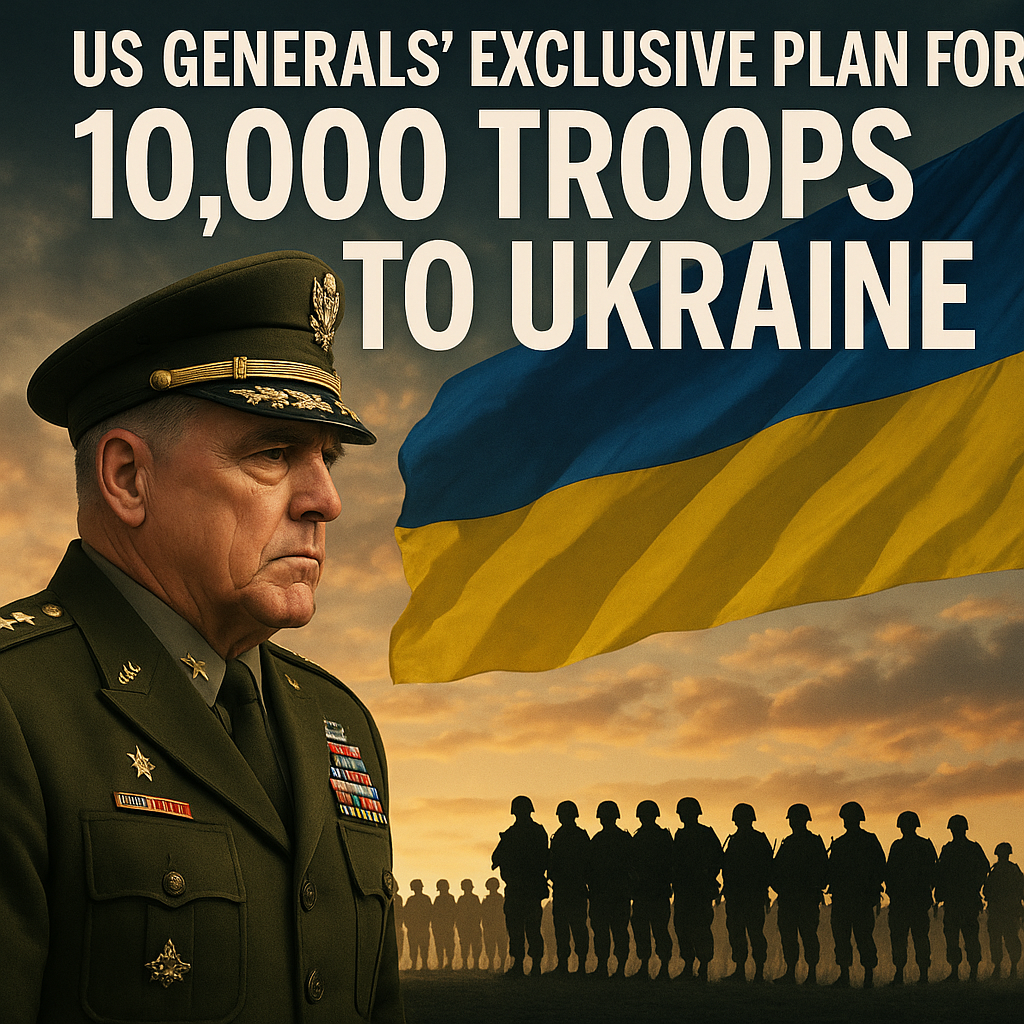US Generals’ Exclusive Plan for 10,000 Troops to Ukraine
US Generals’ Exclusive Plan for 10,000 Troops to Ukraine
The proposal for a plan involving 10,000 U.S. troops in Ukraine has sparked a heated debate on military strategy, diplomatic relations, and geopolitical ramifications. As the situation in Ukraine continues to evolve, understanding the implications of such a deployment requires analyzing the perspectives of military officials, political analysts, and international observers.
The Context Behind the Troop Proposal

Recent discussions among U.S. military leaders have focused on the necessity of deploying approximately 10,000 troops to Ukraine to bolster the country’s defenses against ongoing Russian aggression. A report from RT highlighted that proponents of the plan argue that this deployment would serve not only to support Ukraine but also to deter further Russian advances in Eastern Europe.
Arguments in Favor of Deployment
Supporters of the troop increase emphasize several key points:
– Enhanced Deterrence: By increasing U.S. military presence in Ukraine, advocates believe that Russia would think twice before escalating its military actions. Historical precedents show that a stronger American presence has deterred adversaries in various regions.
– Support for Allies: Many U.S. generals feel that a visible and robust engagement would reassure NATO allies, particularly those in Eastern Europe who are worried about potential threats from Russia. As one general noted, “Showing up matters. Our allies need to see our commitment to their security.”
– Military Readiness: Training and equipping the Ukrainian military have been pivotal in their resistance against Russian forces. A U.S. troop deployment could offer not just manpower but strategic expertise in modern warfare techniques.
Concerns and Counterarguments
However, this proposal is not without its critics, and this opposition comes from various angles:
– Escalation of Conflict: Critics worry that sending additional troops might escalate the situation, drawing the U.S. directly into a conflict that has already led to significant casualties and political strife. Escalation could lead to unintended consequences, including a broader military confrontation with Russia.
– Domestic Priorities: Some analysts emphasize the importance of addressing domestic concerns and suggest that military engagement abroad could detract from pressing issues at home, such as healthcare and infrastructure. Public sentiment varies, and many Americans question whether committing troops to Ukraine serves national interests.
– Complexities of International Relations: International relations experts argue that ground troop deployments could complicate diplomatic negotiations and peace talks. History suggests that military engagement can impede opportunities for dialogue, potentially prolonging the conflict.
The Broader Geopolitical Implications
The potential deployment of U.S. troops has ramifications beyond Ukraine itself. It could reshape U.S. involvement in global conflicts and redefine its military strategy in Europe.
NATO’s Position
NATO’s stance is critical in this debate. While some member countries support greater military assistance to Ukraine, there is a cautious approach regarding troop deployments. The alliance has to balance the need for collective defense with the possibility of escalating tensions with Russia.
Global Perceptions
Countries around the world are closely monitoring the U.S. strategy as it could influence geopolitical alignments. For instance, nations in Asia and the Middle East might reassess their security frameworks based on U.S. actions in Europe.
Additionally, global powers like China, watching the U.S. and Russian engagement, may recalibrate their own military strategies in response. The complexity of these interactions underscores the interconnectedness of global security.
Conclusion: A Complex Decision on the Horizon
While the potential deployment of 10,000 U.S. troops to Ukraine presents certain strategic advantages, it also poses significant risks and concerns. From enhancing deterrence to possibly escalating conflicts, the consequences of such a decision are anything but straightforward.
As the situation continues to unfold, it will be essential for policymakers to weigh these perspectives carefully. Achieving a balance between military support for Ukraine and the prevention of broader conflict will be crucial. Open discussions and honest assessments of objectives will help clarify the path forward, ensuring that any military engagement aligns with the longstanding U.S. goals of maintaining global stability and peace.






































